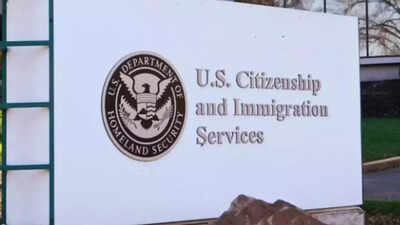US Immigration authority: We are adding new element to citizenship process that ensures America’s newest citizens not only embrace America’s culture, but …

US Immigration and Citizenship Services (USCIS) has updated its policy on Good Moral Character (GMC) to “focus greater attention on whether an alien has engaged in any behavior or act that disqualifies the alien from being found to be a person of good moral character.” The immigration body has issued a memo on August 15 that revokes the previous policy, making GMC evaluation “more than a cursory mechanical review focused on the absence of wrongdoing.” The policy, USCIS said in the memo, “entails a holistic assessment of an alien’s behavior, adherence to societal norms, and positive contributions that affirmatively demonstrate good moral character.”Commenting on the new policy, USCIS chief spokesman Matthew Tragesser said “U.S. citizenship is the gold standard of citizenship — it should only be offered to the world’s best of the best. Today, USCIS is adding a new element to the naturalization process that ensures America’s newest citizens not only embrace America’s culture, history, and language but who also demonstrate Good Moral Character.”
What is new in USCIS policy on Good Moral Character
As listed by USCIS in the memo, the new policy on Good Moral Character will now include: Greater Emphasis on Positive Attributes or ContributionsUSCIS will place greater emphasis on an alien’s positive attributes and contributions in GMC determinations. These positive factors include, but are not limited to:
- Sustained community involvement and contributions in the United States.
- Family caregiving, responsibility, and ties in the United States.
- Educational attainment.
- Stable and lawful employment history and achievements.
- Length of lawful residence in the United States.
- Compliance with tax obligations and financial responsibility in the United States.
Greater Scrutiny of Disqualifying Behavior and ActionUSCIS will focus greater attention on whether an alien has engaged in any behavior or act that disqualifies the alien from being found to be a person of good moral character. Disqualifying behavior or actions include, but are not limited to:
- Permanent bars to GMC, such as murder, aggravated felony, crimes of violence, persecution, genocide, torture, or severe violations of religious freedom.
- Conditional bars to GMC,11 such as controlled substances violations, two or more convictions for driving under the influence (DUI), false claim to U.S. citizenship, unlawful voter registration, or unlawful voting.
- Any other acts that are contrary to the average behavior of citizens in the jurisdiction where aliens reside. These could be actions that, while technically lawful, may be inconsistent with civic responsibility within the community, such as reckless or habitual traffic infractions, or harassment or aggressive solicitation.
- In assessing acts that are unlawful or contrary to the average behavior of citizens of the community in which the alien resides USCIS will review all available documentation and question aliens seeking naturalization regarding the specific circumstances of their actions to determine if a particular situation or act should bar an alien from naturalization.





